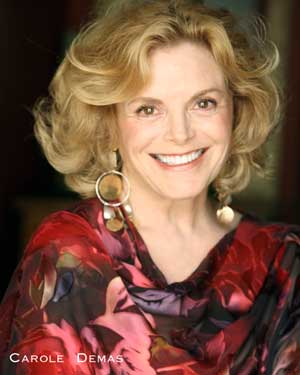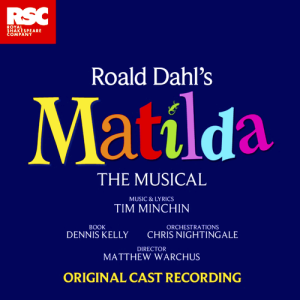Last week, I dropped in at the Laurie Beechman Theatre in the West Bank Cafe (for the first time!) to see Carole Demas, Broadway’s original Sandy in Grease, sing “Summer Nights,” a “varied collection of music she has come to love over the years.” Ms. Demas, a petite blonde with large, expressive brown eyes and a smile that could melt the North Pole, is not unknown to me, but I have never had the opportunity to appreciate how multifaceted and compelling she is as a performer.
The voice is in impeccable form, with a wistful head voice matched by an incredibly powerful belt. Ms. Demas looks and sounds so youthful that many in the audience gasped (yours truly included) when she made passing mention of being 70. Her Broadway material included “Love Don’t Turn Away” from 110 in the Shade, “Carefully Taught” from South Pacific (paired with Bacharach-David’s “What the World Needs Now”), Try to Remember from The Fantasticks, a show she did in NY for two years. She also sang “A Sleeping Bee” from House of Flowers, gave us a delightfully ribald “My Handyman” from Blackbirds of 1930. For an encore, she offered a plaintively introspective rendition of “A Quiet Thing” from Flora, the Red Menace. Her pop selections included Billy Joel, Paul Simon, Loudon Wainwright, James Taylor and George Harrison. (My personal favorite was Harrison’s “Something”).
The first half of the evening was a bit lowkey, with more introspective moments, but during the second half, Ms. Demas took off into stratosphere in energy, wit and voice. She revisited the “Hello Song” from The Magic Garden, a popular children’s television show she hosted on WPIX in NY from 1972-1984. Her co-star/co-host/lifelong friend Paula Janis joined her onstage to share stories and that quirky song, which involved the audience shaking hands with one another. This segued into the evening’s biggest crowdpleaser: a nod to Grease, as she sang “Summer Nights” backed up by Janis and Ilene Kristen (the original Patty Simcox and featured in the original Henry, Sweet, Henry). Matthew Hydzik, of the most recent revival of Grease, made a surprise guest appearance as Danny. (He was backed up by the musicians).
The evening’s highlight; however, was hearing Ms. Demas’ rendition of “Meadowlark,” that oft-sung ballad from The Baker’s Wife that famously closed on the road before Broadway. The thing is, Patti LuPone was not the first person to sing it. Carole was the original Genevieve, opening the show in Los Angeles but was arbitrarily fired by David Merrick when the show wasn’t working. Her rendition is unlike any other I’ve ever heard. Not only was it thrillingly sung, but it was so fully realized, giving us a window into how she played the role in 1976. Carole took us through “that damn bird song” (as Merrick called it), giving us the character’s central conflict, but also showing how much Genevieve yearns for the passion that has long eluded her. It was a bona fide showstopper, and if anything, Ms. Demas needs to get into a recording studio just so that this astonishing interpretation is preserved for future generations.
Most of the concert was focused on her incisive musical interpretation. Sprinkled throughout were stories and patter, but those were few and far between. Ms. Demas radiates warmth and good will, and I wanted to know more of her life and her career. These are her favorite songs and I was hoping she’d tell us why. It didn’t diminish the impact of her singing, but the next time she must tell us more. We could have listened to her – talk or sing – for days. I look forward to the next opportunity I have to sing. And I hope all of you one day get to hear her sing “Meadowlark.”
The evening was directed by Charles Repole; musical direction by pianist Ian Herman (who was not only the perfect accompanist, but also displayed grand virtuosity with his own composition, “Too Fast”) with Sean Harkness on guitar.



